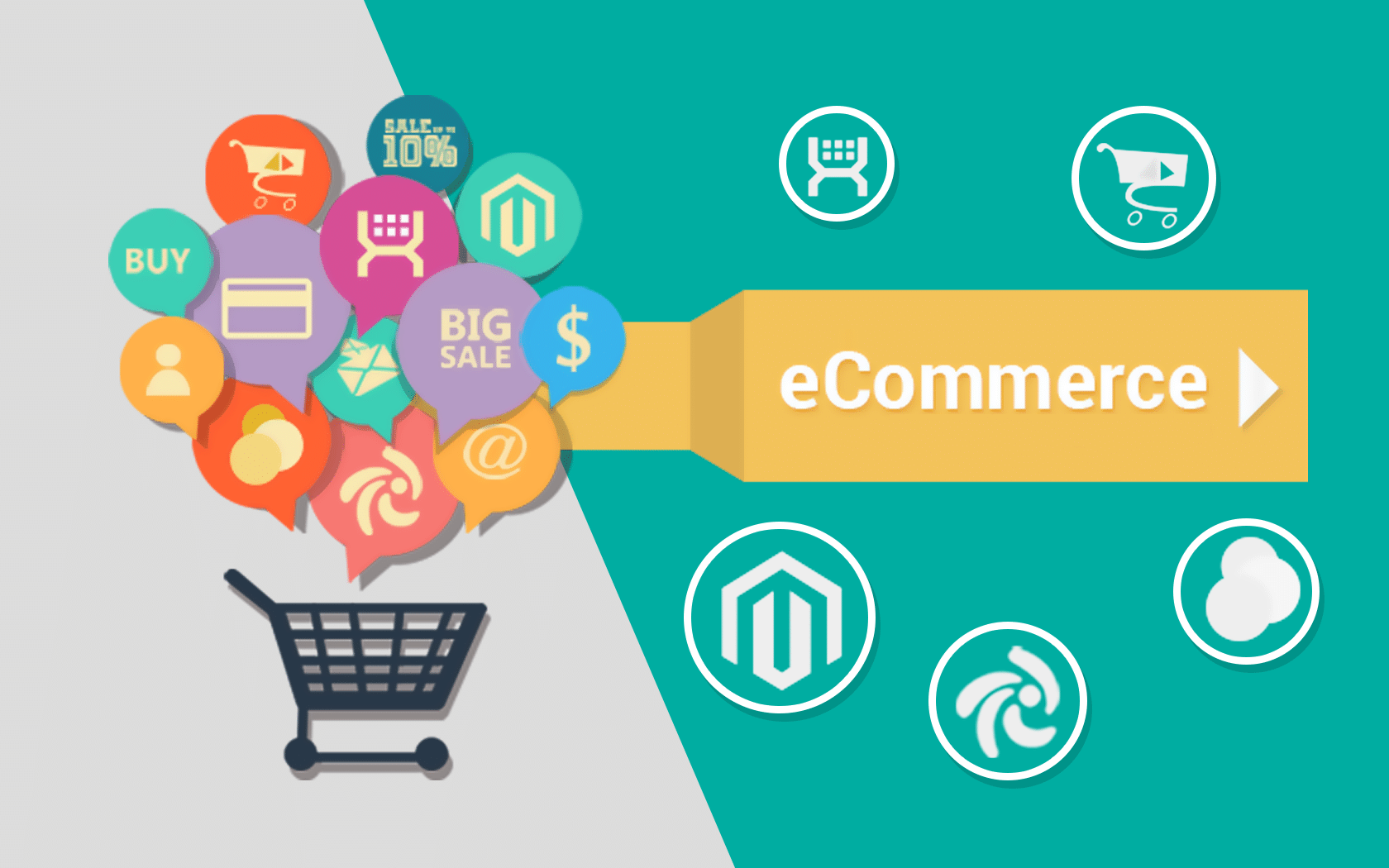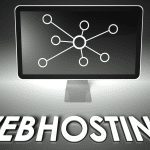- admin
- E-commerce Evolution: Building a Profitable Online Store, E-Commerce Website, E-Commerce Website Development: Building Online Stores for Success
- 0 Comments
- 2438 Views
Planning and building on the web stages that permit organizations to sell labour and products is known as E-commerce Website Development. It involves making easy-to-understand interfaces, overseeing item inventories, associating secure installment channels, and adding highlights to develop clients’ shopping encounters further.
It contains:
- Site page format
- item posting
- staple truck
- Incorporation with installment passages
- Security
- Website design enhancement (site improvement)
- reactivity on portable
- Customer Help
Making an easy-to-use and get-a-stage for online deals is the point of web-based business site improvement. Expanded incomes and transformations result from this since it increments program trust.
How To Foster An E-Commerce Website?
A decent online business site improvement process involves a few cycles with changed levels of intricacy, going from fostering the actual website to communicating your organization’s image in a computerized setting.
Make Your Image:
E-commerce website development requires direction. Your internet business task should be custom-made to your interest group’s preferences, from photograph style to item depiction profundity. At last, ideally, let’s consider an infectious organization name — something particular and essential that precisely conveys your image’s objectives.
Also check: Shopify CMS For The E-Commerce Store – Features With Merits And Demerits
Buy A Space:
While picking a name for your web-based business organization, consider space name accessibility. With Shopify, buying a space is straightforward, albeit famous spaces periodically sell out rapidly.
You should see what URLs are accessible before settling on an organization name to develop brand mindfulness further and create traffic to your internet business website.
Select A Facilitating Framework:
After obtaining your space, you can send off your site by choosing a web have (preferably one that has a web-based business stage) to have it. Others offer pre-built website designs suitable for desktop and mobile viewing, while some hosting services are more basic and require you to design and develop the website yourself.
Create Your Website:
Beyond a recognizable logo and striking colour scheme, your website design should convey your company’s objectives. Because this is the primary operation of your e-commerce website, take great care while building an intuitive online store with simple search and filtering options. Sales can be lost, and a brand’s reputation can suffer due to a disorganized website design or a complicated checkout process.
Determine The Order Fulfillment Process:
Which method of e-commerce fulfillment will you choose? Dropshipping, in-house fulfilment, or third-party logistics (outsourcing fulfilment processing)? These affect your site’s appearance and order processing. Ensure your ad content sufficiently informs clients of when they may expect to get their package, for example, if you depend on a third-party logistics firm and they have an expected delivery time range.
Create And Publish Your Website:
To avoid paying for web development, you may design your website using a prefab approach by dragging and dropping pre-coded content blocks and picture placeholders into a site-building interface using an e-commerce website builder like Shopify. If you have extra money, you can still construct your website individually with a developer, transfer it over, and then use a hosting platform like Shopify.
It’s time to launch your website once you’ve finished building it. But first, you must adequately test everything to ensure everything functions. Before going live, test each part of your site, including the checkout stream, stacking time, and responsiveness to cell phones. Set up following a stage like Google Investigation. As such, you can watch out for the usefulness of your site and make information-driven choices to upgrade it over the long haul.
Keep Your Site Page Refreshed:
Your online business site should be refreshed as often as possible to reflect changes in your stock, product offering, and any continuous specials. A few parts of your web composition should be changed because of client input or because it needs more usefulness than you or your clients require. Online business sites, rather than actual stores, can be changed with the snap of a button.
How to Make a Fruitful E-commerce Store?
Foster a field-tested strategy and a Specialty:
The online business market has a great many items. Giants like Amazon started as specialized shops. To determine your area of interest, do some research on the following e-commerce topics:
- SWOT stands for strengths, weaknesses, opportunities, and threats in a SWOT analysis. It is a straightforward but effective method for assessing products and niche concepts.
- Identify market gaps by doing focused research to identify unmet consumer demands in well-known product categories. Identifying gaps in the target market
Social Media:
- Think about the reactions and proposals of your crowd.
- Look at the volume of looks for different item types on Google Patterns.
- Take a gander at the top-of-the-line things on Amazon and eBay, read surveys, watch instructional exercises, and realize what customers ought to incorporate.
Create an online Store:
Web architecture is testing, however, significant for the send-off of a web-based store. The right plan or layout can distance or redirect clients, expanding deals and store development. You can plan your store’s format by asking yourself: What design works for your organization? While picking a web-based store style, recall the accompanying two focuses: How does your style mirror your image and company? Clients ought to comprehend what you sell and the idea of your organization immediately. Your site’s style frequently mirrors your business, from the typeface to the variety. Premium items should be sold in flashier stores. Selling outdoor equipment has a low chance of success.
What characteristics should your store have? Elements are essential to any online store and are what customers notice initially. Consider what your online store needs and what matters to your company. Do you have an “About” page? Your merchandise videos? Your checkout procedure and shopping cart Making the proper choices for your online store’s features, add-ons, and plugins might make or break it.
Describe Your Products:
A successful online store needs products listed and product pages created. Important things to remember while listing products:
Product Descriptions:
A persuasive product description addresses the customer’s issue, lists features, and highlights benefits to close the deal. Consider investing in product photography. If not, make a handmade arrangement for gorgeous e-commerce pictures. Think about 360-degree images of pricey items like clothing, equipment, and furniture. 360-degree product photography increased online conversion rates by 13%, according to Internet Retailer Magazine.
Product Categories:
Product page relationships are managed using website taxonomies. Categories aid in catalogue display and increase product visibility.
Optional Set Payments:
Before starting your online store, you must offer customers various online payment options. The payment options available at the point of sale (POS) can help you identify your customer base and save time. In e-commerce website development, most builders let you link to popular credit cards like Apple Pay, PayPal, and Stripe. The most common methods for adding payments to your online store are:
- Plans for payment gateways
- Payment processing.
- Gateways for payments and merchant accounts
- Recognize any possible transaction costs.
Complete The Shipping Plans:
You can use it to learn how new things get to their owners. Because 56% of buyers will only purchase from a merchant following a good delivery, an e-commerce shipping strategy is essential. Shipping procedures also shape the expectations of new clients. It must outline the costs, conditions, and restrictions of your delivery. When designing a shipping policy for a store, take into account the following:
- Establish a realistic “free shipping” requirement to increase the number of customers and average order value. Otherwise, use a tiered “flat fee” for urgent, priority delivery made within two days.
- Which providers do you employ? Shipping costs, deadlines, and restrictions vary across USPS, FedEx, and DHL. Choose the best price-to-value ratio after taking into account all the options. Less expensive companies might only accept small items or offer damage protection.
- Do you offer worldwide shipping? To grow your business, sell and ship to Canada and Mexico. Investigate global fulfillment techniques.
- What about BOPIS? Retailers are embracing Buy Online, Pickup in Store (BOPIS) quickly. If you have a physical location, BOPIS can assist your customers.
Introduce and Market Your Online Store:
Every entrepreneur’s nightmare is Google Analytics showing 0 active visitors on launch day. Follow these steps to attract virtual customers to your new store:
- Choose several online marketing methods for e-commerce.
- Make a pre-launch marketing strategy.
- The majority of markets use it to draw customers to fresh internet shops.
- via social media
- Before your website starts, start building your internet audience.
- Short product trailers, teasers, and behind-the-scenes looks can heighten interest.
- To increase interaction, announce the launch date and offer exclusive offers to all followers.
Influencer marketing should take precedence before and after a product launch for companies without audiences. The three main advantages of influencer marketing are as follows:
- brand recognition and recall increase
- involvement with natural content on social media apps
- Using leads boosts sales.
- Influencer partnerships can increase your online visibility and first-stage sales as customers look up your brand or domain name.
Paid Advertising:
Designated Facebook, Instagram, and Pinterest promotions make constant brand and item revelations conceivable. You just receive compensation for genuine activities like snaps, visits, looks, buys, and so on, similar to other execution advertising methodologies. Email showcasing and website design enhancement demand greater investment. Be that as it may, creating new things will hurry the forward movement.
E-commerce website development—one of the most vital parts of fostering your web-based business — isn’t an undertaking to be messed with. Before making and sending a plan, you should evaluate your business requirements and objectives. These benchmarks rely on everything, from picking a space name to employing an outsider engineer.
Also Read
E-commerce Evolution: Building a Profitable Online Store


